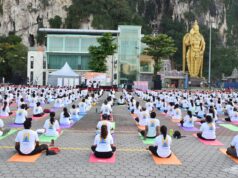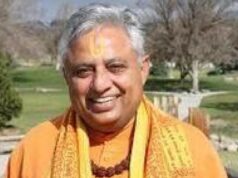

“We found that many of these youths who had endured stressful life events and otherwise would have fallen into the risky behavior trap could actually have positive outcomes later in life because they chose to join in prosocial physical activities, yoga or mindfulness meditation,” says Dr. Jacinda K. Dariotis, UC public health researcher and Director of School of Education, in this Magazine report.


Dariotis found youths who were unable to develop positive coping strategies were much more likely to turn to greater risk-taking behaviors that included unprotected sex or sex for money, substance abuse, violence and crime. Participating in weekly mindful yoga intervention programs as part of the current study taught the youths how to take control of their breathing and their emotions and helped them develop healthier long-term coping skills, Magazine report points out.
“Mindfulness-based yoga programs designed to improve the ability to cope are needed at earlier ages in schools to help vulnerable youths channel their skills more effectively,” Magazine report adds quoting Dariotis.


Yoga, referred as “a living fossil”, was a mental and physical discipline, for everybody to share and benefit from, whose traces went back to around 2,000 BCE to Indus Valley civilization, Zed, who is President of Universal Society of Hinduism, noted.
Rajan Zed further said that yoga, although introduced and nourished by Hinduism, was a world heritage and liberation powerhouse to be utilized by all. According to Patanjali who codified it in Yoga Sutra, yoga was a methodical effort to attain perfection, through the control of the different elements of human nature, physical and psychical.
According to US National Institutes of Health, yoga may help one to feel more relaxed, be more flexible, improve posture, breathe deeply, and get rid of stress. According to a “2016 Yoga in America Study”, about 37 million Americans (which included many celebrities) now practice yoga; and yoga is strongly correlated with having a positive self image. Yoga was the repository of something basic in the human soul and psyche, Zed added.
UC, founded in 1819 and which calls itself a “premier academic institution and a public research powerhouse”, serves over 44,000 students. Thomas D. Cassady and Neville G. Pinto are Trustees Chair and President respectively.










